Mar 2021 1st Edition
Mar 2021 1st Edition Londekile
Translations
Abuse is a violation of human rights
Abuse is a violation of human rights SiboneloThe South African Human Rights Commission is always accessible to members of the public. 
The Chairperson of the South African Human Rights Commission (SAHRC), Professor Bongani Majola, says the high levels of gender-based violence (GBV) in the country are concerning.
The SAHRC is tasked with the constitutional mandate of promoting, protecting and monitoring the attainment of human rights as set out in Chapter 2 of the Constitution of the Republic of South Africa of 1996, the Bill of Rights.
The SAHRC’s mandate extends to the promotion, protection and monitoring of equality, which entails equality in terms of sex and gender.
Majola says the commission has done a lot of gender equality work, including the promotion of the rights of lesbian, gay, bisexual, transgender, intersex and gender non-conforming persons.
For example, its intervention in the late Nare Mphela’s case, which it brought to the Seshego Magistrate’s Court because the transgender learner had been discriminated against by her principal, causing her to fail matric. The Department of Basic Education was ordered to pay R60 000 in personal compensation to Mphela in 2017. Sadly, Mphela was murdered a few years later and her decomposing body was found in a rented room in Parkmore, Sekgakgapeng Village, in Limpopo, in January 2020.
“We also intervened in numerous other matters dealing with discrimination on the basis of gender, sex and sexual orientation,” says Majola.
The commission’s sister institution – the Commission for Gender Equality – was constitutionally established to specifically focus on gender equality, dealing with GBV. “In exercising its broad mandate, it sees gender equality as being central to all rights,” says Majola.
25 years of success
The SAHRC commemorated its 25th anniversary on 2 October 2020. At the time, it reflected on its work to execute its mandate over the years.
“The commission has used the past 25 years to engage in litigation; alternative dispute resolution mechanisms, such as arbitration, mediation and negotiation; and using the media and advocacy to promote human rights.
“These activities span numerous human rights’ themes, with the most prominent relating to equality and race in particular,” says Majola.
He adds that the commission’s senior officials are always accessible to members of the public. For contact details for each province, visit www.sahrc.org.za and click on contact us.
Children urged to read in mother language
Children urged to read in mother language tsoanaThe South African Post Office (Sapo) partnership with non-profit organisation Nal’ibali now makes it possible for children, reading clubs, schools and libraries to collect free reading material from 508 branches throughout the country.
A year ago, the reading supplements were available at only 46 post offices. This increase has been made possible by the partnership Nal’ibali has with the post office.
“By the end of last year Nal’ibali was able to deliver 309 000 reading supplements every month through the post offices. Each copy has three stories – so that is nearly a million stories every month.
“We reached 2 279 reading clubs and about 216 000 kids. We could do this by using the branch network of the post office; everybody knows that there is a post office in almost every village,” said Nal’ibali acting Managing Director, Katie Huston.
Nal’ibali enables young children to read in their mother language by producing interactive reading supplements with illustrations in nine of the 11 official languages of South Africa.
Nal’ibali produces interactive, fun reading material that the children assemble themselves, while the SA Post Office makes the reading material available for collection at its branches at no cost.
Research done by Nal’ibali indicates that the supplements support children, parents and teachers to develop reading habits and that people enjoy reading and using them.
Parents and teachers report that it helps children develop their reading skills, and it gives parents and children an opportunity to spend quality time together.
Research also shows that learning to read in one's mother tongue early in school makes education more engaging, meaningful and enjoyable for children. Children who benefit from mother tongue instruction and learning also perform better in their second language.
“Language is a major factor that binds members of a community and a culture together. In a country like South Africa, famous for its marvellous diversity, the many languages we speak probably play a major role in keeping our varied cultures alive,” Sapo said. SAnews.gov.za
The post office calls on teachers, learners, caregivers or librarians to join the Nal’ibali tribe, by sending an email to info@nalibali.org. The email contain the following details:
- The name and postcode of a local post office;
- The name of a reading club, school or library;
- A cell phone number of the school or reading club that can be put on the address label.
Coca-Cola adds more fizz to employee-ownership scheme
Coca-Cola adds more fizz to employee-ownership scheme UrsulaMinister of Trade, Industry and Competition Ebrahim Patel has commended Coca-Cola Beverages South Africa (CCBSA) for enabling employees to own shares in the company. 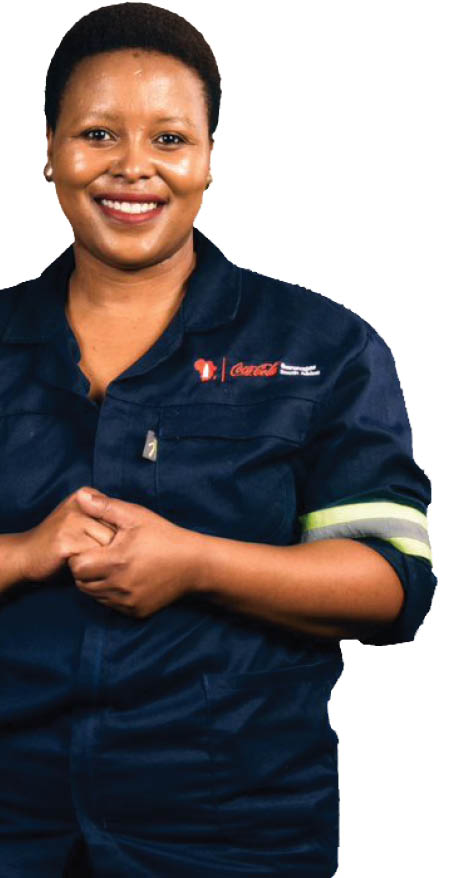
He says this is an important step in creating an inclusive economy in South Africa.
The Ikageng Employee Share Trust will benefit nearly 8 000 South African-based employees currently employed at CCBSA, Coca-Cola Beverages Africa CCBSA and Appletiser.
Every employee will receive an equal allocation of shares, regardless of staff level, race or years of service.
According to the updated CCBSA Broad-based Black Economic Empowerment (B-BBEE) ownership condition, employees’ ownership will be increased, with a significant worker-ownership component.
Managing Director Velaphi Ratshefola says: “This updated agreement will result in employees increasing their current holding of around 5% in CCBSA to an approximate 15% shareholding in CCBSA.
“We remain committed to the ideal of transformation and B-BBEE, and this investment is driven by the recognition that employees are our biggest asset, as they enable the innovation, growth and the sustainable development of our company,” Ratshefola adds.
Minister Patel says the commitment from CCBSA to increase the level of worker ownership in the company, deepen the level of transformation in the sugar value chain and support the broader localisation drive in the economy, are important steps in our efforts to create a more inclusive economy in South Africa.
“It’s an example of what companies can do, and we look forward to others following their lead, as we drive an enhanced model of broad-based transformation, through worker empowerment, in our country,” he says.
Lerato Kgasi (34) of Alexandra in Gauteng joined CCBSA, in May 2019, as a cleaner at the Linbro Park branch and later moved to the Pretoria manufacturing plant.
She says owning shares in the company she works for is a major step for her and fellow employees.
“This is creating a legacy for our future generations, a future built on our combined actions as owners and employees of CCBSA. When we take pride in the business, we all go the extra mile or find new and more efficient ways of working,” she says.
“Being a shareholder, I have a sense of belonging. I’m a proud owner and CCBSA employee,” says Kgasi.
Dance festival set to go live and online
Dance festival set to go live and online LondekileTo comply with health and safety protocols introduced by government to fight the Coronavirus (COVID-19) pandemic, the South African State Theatre is combining the 2021 Kucheza Afrika Dance Festival into a mixture of live and online events from 1 to 11 April.
Like many other arts events across the globe last year, the launch of the festival was postponed due to COVID-19. 
It will now take place from 1 to 11 April, both online and live at the theatre. While some shows will only be able to be watched online, others will be showcased both live and online.
Erick Ndala, the theatre’s public relations and marketing manager, says the festival was spearheaded by the theatre’s artistic director Aubrey Sekhabi.
This year’s programme boasts renowned dancers such as Vincent Mantsoe, Lulu Mlangeni, Bailey Snyman, Nicola Haskins, Ignatius van Heerden, Fana Tshabalala, Thulani Chauke, Mdu Nhlapo and more.
“We have intentionally and singularly curated an open programme – a platform to express the dynamism and uninhibited creative expression that Africa is known for.
“This dance festival also acknowledges our youth and their acute awareness of the challenges within society and their ability to narrate those stories, with their techniques and interpretation of contemporary African dance,” says Sekhabi.
The programme has been split into two categories, namely the main programme, which profiles experienced choreographers and headlining works; and the young artists programme, which is a bespoke platform for young dancers who are finding their feet in dance.
About the festival
The Kucheza Afrika Dance Festival is a continuation of the South African State Theatre’s 2019 dance festival, Dance Umbrella Africa.
Inspired by the Swahili word for dance, Kucheza aims to help preserve dance in the country and in Africa. It also wants to ensure that dancers always have a home at the theatre.
Other festival goals are to continue serving domestic and continental dance communities and inspire a call to action for Africa to converge as one in its diversity.
Download full programme here: https://www.dropbox.com/s/ll1kdpbudqv8drf/Kucheza%20Programme%202021.pd…
Ticket information
Tickets for the Kucheza Afrika Dance Festival can be purchased from the South African State Theatre’s official ticketing service provider Webtickets – either online or at Pick n Pay stores nationwide.
Tickets costs the following:
Main programme: R120 (live shows).
Young Artists Programme: R80 (live shows).
Online shows (all): R30.
Dealing with the loss of a loved one
Dealing with the loss of a loved one LondekileMany people have lost loved ones as a result of the Coronavirus pandemic and the death may often feel unreal.
“You are not alone,” says community psychologist Zanele Ludziya from the Stikland Hospital in the Western Cape.
Losing a loved one is never easy and can trigger a range of emotions.
“There are many signs you can look out for when a loved one is grieving, but an absence of symptoms does not mean that the person is not grieving.
“People may show signs of anger, irritability, sadness or apathy. Their cognitive functioning may also be affected, as they may be preoccupied with thoughts and memories of the deceased. They could also have trouble concentrating or may appear confused,” says Ludziya.
She advises people to be aware of behavioural changes, such as being tearful or increased alcohol and substance use.
“They may smoke more than they usually do, they may withdraw or isolate or they may avoid people and places. They may want silence or increased noise. They could also be more aggressive or snappy,” she says.
When supporting a loved one, Ludziya says it is helpful to understand the grieving process and that everyone experiences it differently. She explains that grief is not a state, but a process, and people usually go through stages of grief.
Common stages of grief
The common stages of grief are denial or isolation (experiencing numbness or shock); anger (getting angry with others when they have not done anything wrong); bargaining (experiencing feelings of guilt over things not done or said); depression (the sadness that comes with realising that life will continue without their loved); and acceptance (finding a way to living a fulfilled life without the person).
“One way of coping or showing support is to understand the stage of grief you are in or that a loved one is experiencing. This can reassure the grieving person that what they are experiencing is normal. Treat the person or yourself with kindness, patience and understanding, keeping in mind that what you are experiencing will eventually pass,” says Ludziya.
You can help someone who has lost a loved one by asking them what kind of support they need. There are also non-governmental organisations, such as the South African Depression and Anxiety Group, which offer support. Visit their website at www.sadag.org or call the helpline at 0800 567 567.
Economic recovery plan bears fruit
Economic recovery plan bears fruit SiboneloPresident Cyril Ramaphosa has outlined progress made since the announcement of the Economic Reconstruction and Recovery Plan (ERRP).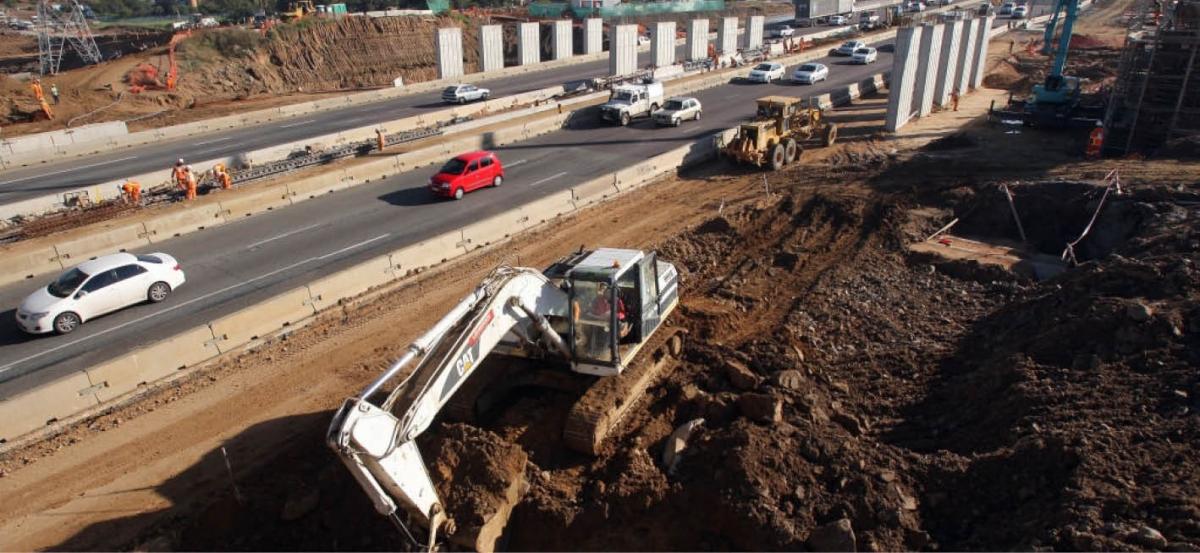
Delivering the 2021 State of the Nation Address (SONA) recently, the President says, since the launch of the plan on 15 October 2020, the country’s infrastructure investment project pipeline worth R340 billion in network industries such as energy, water, transport and telecommunications had been developed.
“Construction has started and progress is being made on a number of projects,” he says, adding that government had, since the launch, focused on four priority interventions:
- A massive roll-out of infrastructure throughout the country;
- A massive increase in local production;
- An employment stimulus to create jobs and support livelihoods; and
- The rapid expansion of our energy generation capacity.
Since the announcement of the plan, two major human settlements projects that will provide homes to almost
68 000 households in Gauteng have been launched.
Reviving infrastructure?
The President believes that these infrastructure projects will lead to the revival of the construction industry and the creation of much-needed jobs.
Unveiling the plan in October, President Ramaphosa says the Infrastructure Fund would provide R100 billion in finance over the next decade, leveraging as much as R1 trillion in new investment for strategic infrastructure projects.
During SONA, he announced that the fund, which will blend resources from the fiscus with financing from the private sector and development institutions, was in full operation.
Its approved project pipeline for 2021 is varied and includes the Student Housing Infrastructure Programme, which aims to provide 300 000 student beds.
Another approved project is SA Connect, a programme to roll out broadband to schools, hospitals, police stations and other government facilities.
Supporting local production
The second priority intervention of the ERRP is to support a massive increase in local production and to make South African exports globally competitive.
Key to this plan is a renewed commitment from government, business and organised labour to buy local, which will lead to increased local production, and the revival of the manufacturing industry.
In turn, all social partners who participated in the development of the plan, as part of a social
compact, have agreed to work together to reduce the reliance on imports by 20% over the next five years.
A total of 42 products – ranging from edible oils to furniture, fruit concentrates, personal protective equipment and steel products - have been identified as those than can be sourced locally.
“If we achieve our target, we will significantly expand our productive economy, potentially returning more than R200 billion to the country’s annual output.”
On supporting small, medium and micro enterprises (SMMEs), the departments of Small Business Development and Trade, Industry and Competition are supporting SMMEs to access larger domestic and international markets.
The country is firmly on track with its industrialisation plans which are underpinned by sector master plans to rejuvenate and grow key industries such as the Poultry Master Plan.
Government has also worked closely with the auto sector to help it weather the pandemic.
By the end of the year, the sector had recovered around 70% of its normal annual production, in difficult circumstances.
Employment stimulus
The third priority intervention is an employment stimulus to create jobs and support livelihoods.
The largest numbers of jobs,says the President, will be created by the private sector in a number of industries as the economy recovers.
Meanwhile, the Presidential Employment Stimulus is one of the most significant expansions of public and social employment in South Africa’s history.
By the end of January 2021, over 430 000 opportunities had already been supported through the stimulus.
Expanding energy generation
The fourth priority intervention of the ERRP is to rapidly expand energy generation capacity.
The President says restoring Eskom to operational and financial health and accelerating its restructuring process was central to this objective.
“This will lay the foundations for an efficient, modern and competitive energy system,” he says, adding that the power utility was making substantial progress with its intensive maintenance and operational excellence programmes to improve the reliability of its coal fleet.
“We are working closely with Eskom on proposals to improve its financial position, manage its debt and reduce its dependence on the fiscus,” he says. - SAnews.gov.za.
Fighting cancer and winning
Fighting cancer and winning UrsulaNine-year-old Katlego Mokgoko shares her story about overcoming retinoblastoma. 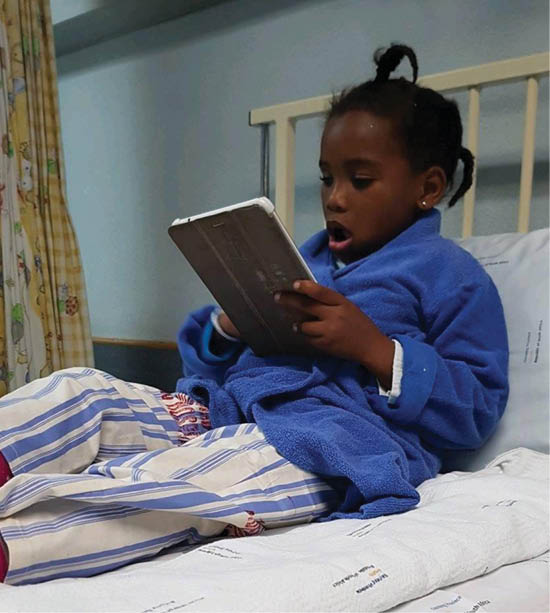
Katlego Mokgoko from Ga-Rankuwa, north of Pretoria, is an unsung hero. Diagnosed with retinoblastoma (eye cancer) at the age of three, in 2015, Katlego conquered the disease after undergoing aggressive chemotherapy and an operation at Steve Biko Academic Hospital.
Her mom, Tamara Mokgoko, says the journey was extremely difficult for the family. “We discovered there was something different about Katlego’s right eye after taking photographs using the camera’s flash. In the photos, her eye was shiny. We Googled ‘shiny eyes in children’ and discovered that, indeed, something was not right.”
After the search results indicated that the little girl could have eye cancer, the family sought medical help. “It was confirmed that she had retinoblastoma,” says Mokgoko.
After many tests at the Pretoria-based hospital, a doctor confirmed that the cancer had already spread to the nerves at the back of Katlego’s eye and that she needed chemotherapy treatment to try to shrink the cancer.
“I must admit the staff, from the doctors and nurses to the dietician and cleaners, were all so friendly and helpful. They proved to be very dedicated individuals who were patient with us and explained everything to our full understanding,” she says.
Despite the Mokgoko’s positive experience, public health cancer services face many challenges. To overcome these, the Department of Health has invested in oncology services infrastructure. This means that public oncology centres will benefit from better equipment, which will improve the care they are able to offer.
Health spokesperson Popo Maja says the department is finalising innovative processes to decentralise access to chemotherapy, especially in rural areas. It is also engaging private and other partners to address backlogs that existed previously but were made worse by the Coronavirus pandemic.
The department reminds people to regularly be screened for common cancers and, should they have the disease, to stick with their treatment.
Mokgoko agrees, adding that with young children in particular, parents should take note of anything that seems ‘not normal’ with their child and to seek professional help. She says that when cancers are caught early, there is a better chance of recovery.
For more information about free cancer screening visit your nearest clinic.
Get free help for a gambling disorder
Get free help for a gambling disorder LondekileThere is no denying there is a certain glamour to gambling. Yet, for someone suffering from a gambling addiction, life is far from glamorous.
This is according to Lesego Kwanini (34), a marketing consultant from Alexandra, who started gambling in 2010 to escape the stress of her relationship and financial situation.
“It started innocently, taking a chance on the slot machines. It wasn’t long before I was hooked. In one day, I won R50 000. It’s hard to say no to that kind of rush. But in the end, my habit cost far more than I ever won,” says Kwanini.
Between 2010 and 2015, Kwanini lost her job, family and friends. “I was lying to the people closest to me, but I didn’t care… I had my slot machines – they were my friends.”
It was only a matter of time before those ‘friends’ turned into enemies. Running out of money to support her gambling habit, Kwanini found herself in debt and turned to loan sharks, who she could not pay back. “I was on the verge of suicide,” she admits.
While at a casino, Kwanini saw a pamphlet about the South African Responsible Gambling Foundation’s (SARGF) treatment programme for problem gamblers. She attended the foundation’s free outpatient counselling sessions for three months. “It was hard. There were many times I felt like gambling, but I stayed strong,” she says.
“I feel blessed now. I’m in a happy place.”
According to Sibongile Simelane-Quntana, the Executive Director of the SARGF, a problem gambler is someone who continues to gamble despite the negative consequences or impact it has on their life. They also do not want to stop.
There are many signs a disordered gambler may exhibit, including being withdrawn, tired and asking for money or loans, she says.
“There are no winners in gambling, only some who lose less,” says psychiatrist Dr Mike West, who practises at Akeso Milnerton.
Betting on games of chance or horses is harmless fun for most people but, when people lose control over their gambling habit, it can be as addictive and destructive as using drugs, says Dr West.
He advises regular gamblers to ask themselves the following questions:
- Do you hide the extent of your gambling?
- Do you gamble to escape from problems?
- Are you making larger bets?
- When you are not gambling, do you feel irritable or depressed?
- Do you crave gambling or spend a lot of time thinking about gambling?
- Have you had difficulties in the workplace because of gambling?
- Is your gambling negatively affecting your relationships?
If you answer yes to these questions, Dr West advises an in-depth assessment for a gambling disorder.
If you think you need help, contact SARGF’s toll-free, 24-hour helpline at 0800 006 008, send a WhatsApp to 076 675 0710 or visit www.responsiblegambling.org.za. All services, including support, information, assessment and referral for face-to-face counselling, are free.
Government to expand support for GBV survivors
Government to expand support for GBV survivors SiboneloThe GBVF Response Fund aims to support relevant programmes and campaigns that wage an ongoing war against women abuse in South Africa.
A partnership between government and the private sector that was launched recently has already secured pledges of R128 million in support of efforts to stop gender-based violence and femicide (GBVF).
The GBVF Response Fund was launched by President Cyril Ramaphosa to support the implementation of the National Strategic Plan (NSP) – South Africa’s roadmap to ending GBVF.
During the launch, business and donor communities pledged millions to the fund. Pledges included a R30-million contribution by Anglo American, R20 million by Absa and a R20 million by the Ford Foundation, President Ramaphosa confirmed in his State of the Nation Address recently.
“With your financial support, we will be able to step up the national response to GBVF by expanding the scope of services at national, provincial and community levels. We can increase support to community-based organisations that are doing such valuable work in our villages, towns and cities and that rely on donor funding to survive,” he says.
The President added that government would continue to expand its support programmes for survivors of GBVF and would allocate about R12 billion, over the next three years, to various components of the NSP.
“Ending GBV is imperative if we lay claim to being a society rooted in equality and non-sexism.
“To give effect to this, three key pieces of legislation were introduced in Parliament last year to make the criminal justice system more effective in combatting gender-based violence,” President Ramaphosa says.
To ensure that the money is spent correctly, financial services companies ENS Africa, PriceWaterhouseCoopers, Deloitte, Alexander Forbes and Absa have volunteered to audit the fund at no cost.
The fund’s work is guided by seven principles. These are to:
- Operate with transparency, integrity and accessibility.
- Support organisations and institutions that address challenges faced by women that make them vulnerable to GBVF.
- Allocate resources with women empowerment and social consciousness as priorities.
- Facilitate access to funding of women’s organisations in marginalised communities.
- Adopt a proactive funding approach.
- Focus on matters relating to GBVF with unique and strategic insight.
- Interact with like-minded GBVF activists on the ground, through a network of social facilitators.
For more information about the fund, visit www.gbvfresponsefund1.org or email info@gbvfresponsefund1.org
Growing SA: Numbers that tell the story SONA 2021
Growing SA: Numbers that tell the story SONA 2021 UrsulaPresident Cyril Ramaphosa highlighted key numbers that track South Africa’s progress over the past year and government’s priorities for 2021 in his recent State of the Nation Address. Vuk’uzenzele breaks these priorities down into numbers.
Coronavirus pandemic 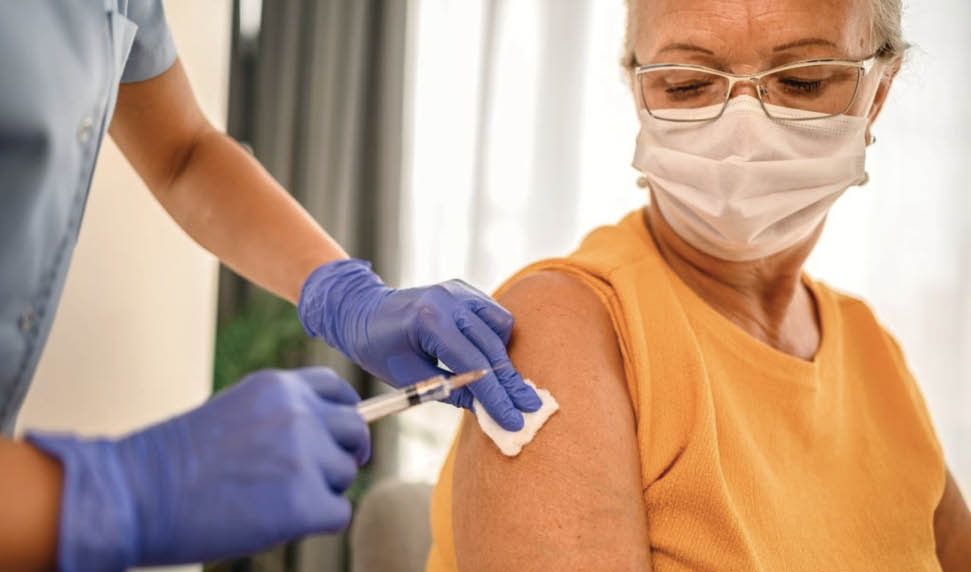
- 9 million – doses of the Johnson & Johnson vaccine secured.
- 12 million – vaccine doses secured from the COVID-19 Vaccine Global Access Facility.
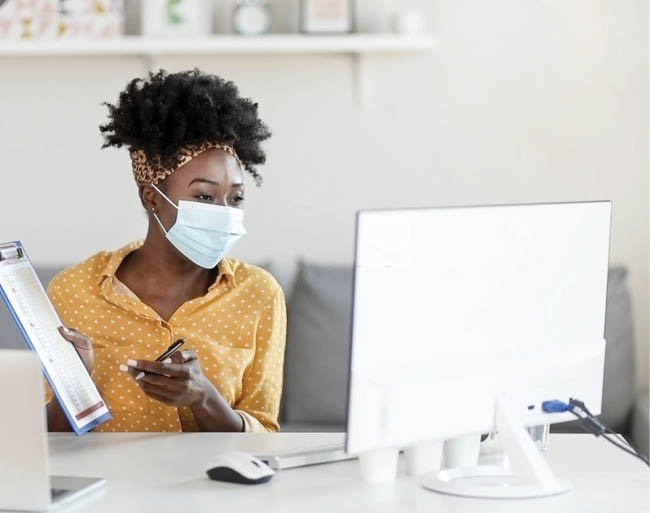 Economy and employment
Economy and employment
- R500 billion – value of the social and economic COVID-19 relief package.
- 30.8% - the unemployment rate in South Africa.
- 18 million – people received additional grant payments.
- Over five million – people benefitted from the social and economic relief package.
- R57 billion – wage support paid to over 4.5 million workers through the Special Unemployment Insurance Fund Temporary Employer/Employee Relief Scheme.
- 40% – public procurement for women-owned businesses.
- R1.3 billion – used to support small- and medium-sized businesses.
- R70 billion – tax relief extended to businesses in distress.
- R18.9 billion – value of loans approved for 13 000 businesses through the Loan Guarantee Scheme.
- Over 430 000 – job opportunities supported through the Presidential Employment Stimulus.
- Almost half a million – people receiving an income, developing new skills and contributing to their community and the country’s economy through environmental programmes.
- 1 000 – young entrepreneurs benefited from grant funding and business support provided by the National Youth Development Agency (NYDA) and the Department of Small Business Development (DSBD).
- 15 000 – start-ups to be supported by the NYDA and the DSBD by 2024.
Infrastructure 
- R340 billion – the value of the Infrastructure Investment Project pipeline.
- 68 000 – households in Gauteng will benefit from homes provided through two major human settlement projects.
- 350 000 to 500 000 – people expected to benefit from homes to be built within the next decade, as part of the Lanseria Smart City project.
- R19 billion – the value of roads projects.
- R100 billion – the Infrastructure Investment Plan budget.
- 300 000 – student beds to be provided through the Student Housing Infrastructure Programme.
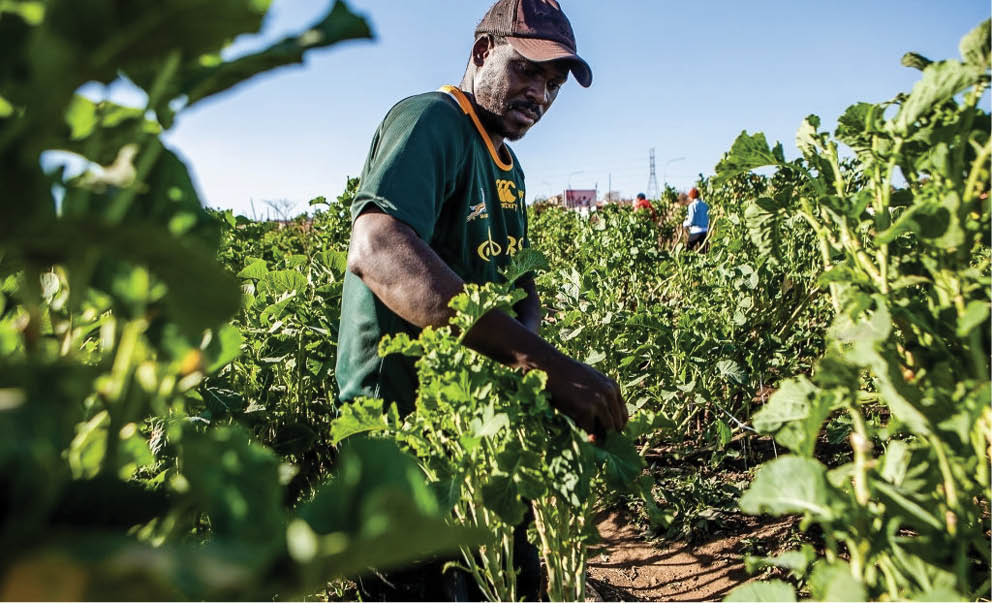 Local products
Local products
- 20% – the planned reduction of South Africa’s reliance on imports over the next five years.
- 42 – products, ranging from edible oils to furniture, fruit concentrates, personal protective equipment, steel products and green economy inputs, that can be sourced locally.
- Over R200 billion – could be returned to the country’s annual output by sourcing products locally.
- 1 000 – locally produced products to be procured from small, medium and micro enterprises.
- R800 million – invested to upgrade production through the Poultry Master Plan.
- 1 million – additional chickens South Africa produces every week. through the Poultry Master Plan.
- 80% – quantity of sugar that large sugar users have committed to procure from local growers, as part of the Sugar Master Plan.
- 85 000 – workers employed in the sugar industry.
Over half a billion rand – invested by the clothing, textile, footwear and leather industry to expand local manufacturing facilities. 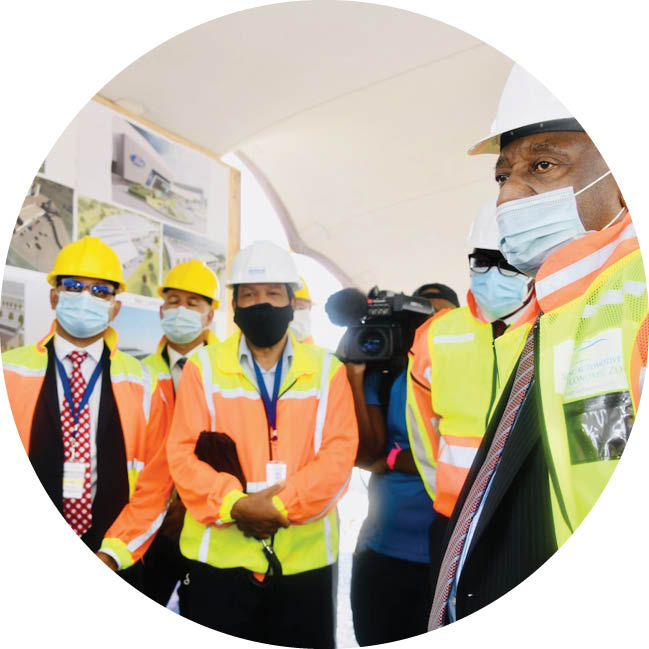
- 70% – the level of normal annual production the auto sector had recovered by the end of 2020.
- Investment
- R16 billion – the investment by Ford Motor Company to expand its manufacturing facility in Tshwane.
- R1.7 billion – the value of procurement opportunities to be allocated to small, medium and micro enterprises.
- R108 billion – additional investment commitments raised by the third South Africa Investment Conference.
- R773 billion – in investment commitments towards government’s five-year target of R1.2 trillion.
- R183 billion – investments have flowed into projects that benefit the economy.
- 125 000 – new companies registered through the BizPortal platform in 2020.
- 1.2 million – people on the National Pathway Management Network, which provides support and opportunities to young people across the country.
Land restitution
- Over 5 million – hectares of land (5 500 farms) have been redistributed to over 300 000 beneficiaries.
- Over 2 million – land claimants benefited from the land restitution process that resulted in the transfer of around 2.7 million hectares of land.
Jobs: Government Communications (GCIS)
Jobs: Government Communications (GCIS) LondekileProvincial Director: Northern Cape
Ref: 3/1/5-21/12
Branch: Intergovernmental Coordination & Stakeholder Management
Salary: An all-inclusive salary package of R1 057 326 per annum
Centre: Northern Cape
Enquiries: Ms M Tshwane, Tel: 012 473 0188
Closing date: Friday, 5 March 2021
Applications: The DG of Government Communication and Information System, Private Bag X 745, Pretoria 0001, or hand deliver to Tshedimosetso House, 1035 corner Francis Baard and Festival streets, Hatfield, Pretoria, for the attention of Mr S Ndlovu.
Kindly visit www.gcis.gov.za for more information on the requirements and functions/key performance areas of this position.
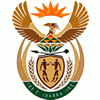
Online platform helps local farmers flourish
Online platform helps local farmers flourish UrsulaKwaZulu-Natal-based Zamokuhle Thwala (29) has created a digital crowdfunding platform that empowers smallholder farmers.
AgriCool is an online marketplace that links smallholder farmers and buyers to a fair and reliable market. Thwala says the platform also helps farmers secure financial assistance and gives them access to real-time information that they need to improve production.
The entrepreneur, who was once a smallholder farmer himself and knows how hard it is to secure the money needed to get started, and then to find good markets for your products.
“I would farm and lose most of my produce to spoilage due to lack of access to markets. I decided to quit farming so I could solve these key problems in the agri-value chain. With AgriCool, we work with both formal and informal markets. Street vendors can get their fresh produce delivered to them, saving them time and transportation costs, while we link formal smallholder farmers with market access opportunities,” he says.
AgriCool is one of 10 start-up companies chosen for the AlphaCode incubation programme, which is powered by Rand Merchant Investment.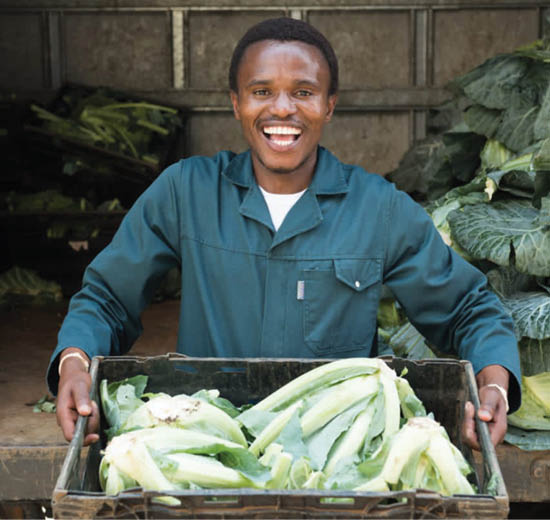
The 10 companies will benefit from a 12-week intensive pre-incubation programme valued at R500 000, including R150 000 in grant funding for each participant.
“It’s a golden opportunity for us,” says Thwala. “The insight we are gaining is invaluable and is going to contribute immensely to our success. I like that it’s very practical. With regards to the funds, we will be investing it in the improvement of the technology behind AgriCool.”
Although 2020 proved to be a tough financial year for Thwala and his business, things are on the mend. “Over and above the AlphaCode win, we have also sealed deals with Boxer, Save Hyper and Farm Fresh and gradually, other smallholder farmers are coming on board.”
According to the World Wildlife Forum, South Africa has an estimated two million smallholder or household farmers compared to 35 000 commercial growers, while 2020 economic figures released by Statistics South Africa indicate that the agriculture sector contributes 4% annually to the GDP of the country.
“I think agriculture is the backbone of the economy and the most relevant industry. I want more people to join this space and see farming as cool. The plan is to grow AgriCool’s market share, partner with more retailers and expand to other provinces,” he says.
Interested smallholder farmers can visit www.AgriKool.com or call 065 677 1573 for more information.
SA rolls up sleeves for COVID-19 vaccination
SA rolls up sleeves for COVID-19 vaccination SiboneloPresident Cyril Ramaphosa and Health Minister Dr Zweli Mkhize recently led the nation by example when they launched South Africa’s mass Coronavirus Disease (COVID-19) vaccination programme. They joined the first healthcare workers in the country to be vaccinated.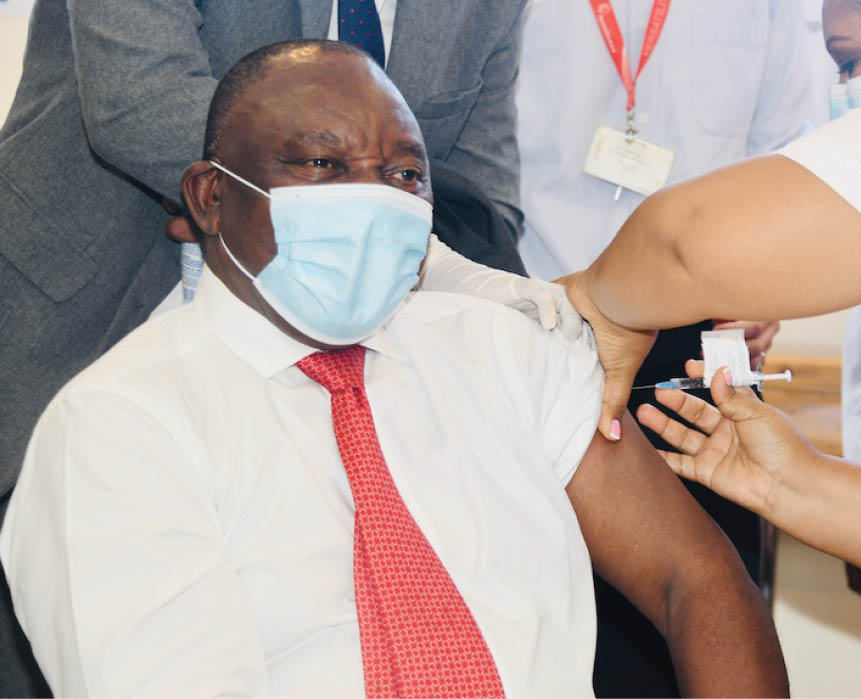
The President demonstrated his confidence in the Johnson & Johnson (J&J) COVID-19 vaccine and helped to allay people’s fears when he was vaccinated against the virus at the Khayelitsha District Hospital in the Western Cape.
The first batch of J&J vaccines arrived in the country on 16 February.
“It gives me great pleasure to announce that the first batch of 80 000 doses of the J&J vaccine is being prepared for distribution across South Africa with immediate effect,” the President says.
“As this batch has already been approved by the South African Health Products Regulatory Authority, these vaccines will be rapidly dispatched to all provinces,” he added.
Most vaccination centres were ready to begin the vaccination programme from 17 February.
The President says he is pleased that the vaccination programme commenced in mid-February, as was previously announced by government.
This feat was realised even though South Africa’s roll-out of the AstraZeneca vaccine that arrived on 1 February, had to be suspended as they are not effective against the 501Y.V2 virus variant that is dominant in the country.
Minister Mkhize says the AstraZeneca vaccines will be distributed to countries that do not have the 501Y.V2 virus variant. “There will, therefore, be no wasteful expenditure,” he confirmed.
“I would like to congratulate the Vaccine Inter-Ministerial Committee, the Ministerial Advisory Committee on Vaccines, Minister Mkhize and his team, and the Medical Research Council for responding so rapidly and effectively to this challenge,” the President says.
Nurse Zoliswa Gidi-Dyosi will go down in history as South Africa’s first healthcare worker to receive the vaccine. To date, over 380 000 healthcare workers have registered to be vaccinated.
J&J vaccine is safe
The President confirmed that the J&J vaccine was shown to be safe and effective during extensive trials. It will protect South Africa’s healthcare workers from illness and death due to COVID-19, he added.
“We have called on leaders in various sectors and parts of the country to lead by example and get vaccinated publicly. We will therefore witness some Premiers, MECs and leaders from civil society, religious formations and traditional leadership being vaccinated in all provinces."
Speaking in Parliament during the State of the Nation Address (SONA) Debate, Minister Mkhize confirmed that COVID-19 vaccinations are free at the point of care and will be paid for by public funds and medical aids.
Defeating COVID-19
During his SONA, President Ramaphosa says defeating COVID-19 is government’s number one priority.
“Fundamental to our nation’s recovery is an unrelenting and comprehensive response to overcome COVID-19,” he says.
Driven by the 501Y.V2 variant, the country’s second wave was more severe and cost many more lives than the first wave.
“Nevertheless, the human cost could have been far greater. Had we not moved quickly to restrict movement and activity, had we not prepared our health facilities, had South Africans not observed the basic health protocols, the devastation caused by this virus could have been far worse.
“This year, we must do everything in our means to contain and overcome this pandemic. This means intensifying our prevention efforts and strengthening our health system. It also means that we must undertake a massive vaccination programme to save lives and dramatically reduce infections across the population,” the President says.
Vaccine update
South Africa has secured nine million doses of the J&J vaccine, the President confirmed during the SONA.
Government has also secured 12 million vaccine doses from the COVID-19 Vaccine Global Access Facility, which will be complemented by other vaccines available to South Africa through the African Union’s African Vaccine Acquisition Task Team.
“Pfizer has committed 20 million vaccine doses, commencing with deliveries at the end of the first quarter.
“We are continuing our engagements with all vaccine manufacturers to ensure that we secure sufficient quantities of vaccines that are suitable to our conditions. The health and safety of our people remains our paramount concern,” the President says.
SA to start analogue TV switch-off in March
SA to start analogue TV switch-off in March LondekileThe long-awaited national switch-off process of analogue television transmitters will get underway next month.
The analogue switch-off will see the country move away from analogue to digital broadcasting.
“It is anticipated that this process, which will be done province-by-province, will be completed by the end of March 2022,” says President Cyril Ramaphosa.
The President made this announcement during his State of the Nation Address (SONA) during a hybrid joint sitting of the National Assembly and National Council of Provinces recently.
Meanwhile, the licensing of high demand spectrum is at an advanced stage.
“We hope that the ongoing litigation on the licensing matter will provide legal certainty and will not unduly delay the spectrum auction process.”
The President told Parliament that the completion of digital migration is vital to harness opportunities presented by technological change.
The primary aim of digital migration is to release valuable spectrum that will be used to provide new services such as wireless and other broadband services.
It will also lead to efficient use of available spectrum since digital broadcasts only require a fraction of the spectrum required for broadcasting services. Digital broadcasting will bring more television channels, more content and allow more choice for consumers.
The migration will also result in better quality sound and visuals on television and connect everyone in South Africa. SAnews.gov.za.
SIU gains ground against corruption
SIU gains ground against corruption SiboneloThe SIU is working hard to recoup state funds lost through corruption, fraud and maladministration. 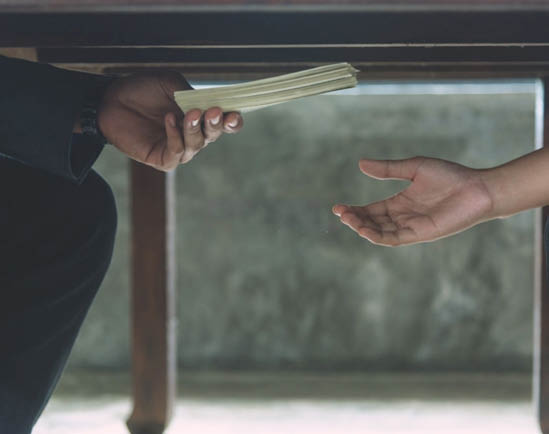
Heeding President Cyril Ramaphosa’s call to accelerate the fight against nationwide corruption, the Special Investigating Unit (SIU) has cracked a few high-profile cases with help from callers to the Whistle- Blower Hotline.
The SIU conducts investigations at the President's request and reports to him and Parliament on the outcomes.
Its primary mandate is to recover and prevent financial losses to the State caused by acts of corruption, fraud and maladministration.
The SIU Whistle-Blower Hotline, where most tipoffs are received, was formally established in 2018 in collaboration with Whistle-Blowers (Pty) Ltd.
In 2020, the SIU was authorised to investigate allegations of unlawful conduct with respect to Coronavirus Disease (COVID-19) procurement by all state bodies during the National State of Disaster.
Allegations reported to the unit include irregular procurement.
Kaizer Kganyago, the head of stakeholder relations and communications at the SIU, says the Whistle-Blower Hotline has proven to be resourceful.
“South Africans need to know that corruption has detrimental effects on government's ability to deliver basic services like water, housing, education, roads, healthcare and electricity. As a result, all of us must join hands and fight against corruption by speaking out and reporting all allegations of corruption,” he says.
Callers do not have to reveal their identity as reporting is 100% anonymous.
During his recent State of the Nation Address, President Ramaphosa said fighting corruption is one of the four priorities this year.
To date, the SIU has finalised investigations into 164 contracts, with a value of R3.5 billion, he adds.
The President says although much progress has been made in the past three years, corruption remains one of the greatest impediments to the country’s growth and development.
“There has been great progress in turning around law enforcement bodies. Critical leadership positions have been filled with capable, experienced and trustworthy professionals. We have [also] started the implementation of the National Anti-Corruption Strategy, which lays the basis for a comprehensive and integrated society-wide response to corruption. Tackling crime [and corruption] is central to the success of our recovery,” the President says.
To report crime and corruption, place a free call to 0800 037 774, SMS: 33490 or email siu@whistleblowing.co.za.
SONA: Government’s master plans come together
SONA: Government’s master plans come together SiboneloWhile delivering his fifth State of the Nation Address recently, President Cyril Ramaphosa made it clear that government is not in the business of making empty promises but is instead working hard to reboot the country. 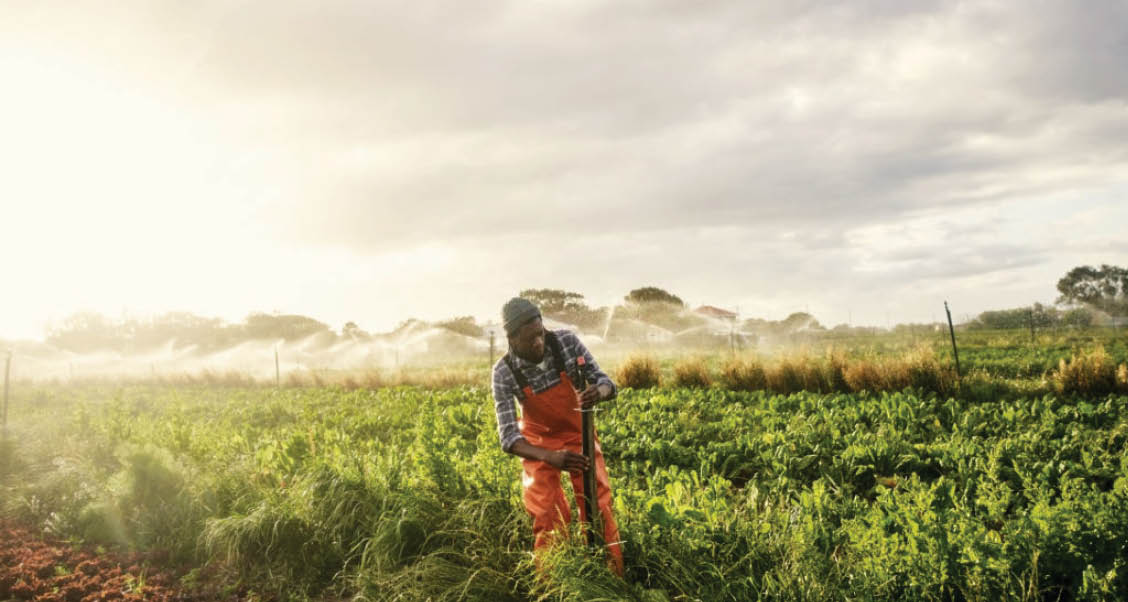
With the SONA meticulously themed ‘Following up on our commitments: Making your future work better’, President Ramaphosa says government’s key priorities were to overcome the Coronavirus Disease (COVID-19)pandemic, address the country’s economic and employment challenges, and confront corruption.
He explained how the various sectors’ master plans, launched in 2020 to rejuvenate and grow key industries, were coming together. “Four master plans that have been completed and signed to date – which are part of the social compact between labour, business, government and communities – have already had an impact in their respective industries,” he says.
Agriculture boost despite tough year
Despite the economic damage caused by COVID-19, the country’s agricultural sector has performed well.
In 2020, South Africa became the world’s second largest exporter of citrus, with strong export growth in wine, maize, nuts, deciduous fruit and sugarcane. The Citrus Growers Association has reported that South Africa exported a record 146 million cartons of citrus in 2020.
The sugar industry has also reported a rise in local production and a decline in imported sugar.
The President says: “The Sugar Master Plan was signed during the lockdown, with a commitment from large users of sugar to procure at least 80% of their sugar needs from local growers.
"Through the implementation of the plan, last year saw a rise in local production and a decline in imported sugar.”
Support for black small-scale farmers is also being stepped up, with a large beverage producer committing to expand its procurement sharply. “The industry is said to employ some 85 000 workers,” the President says.
Poultry Master Plan takes flight
The poultry industry is said to be one of the biggest agricultural industries in South Africa, employing in excess of 100 000 people throughout the value chain.
Signed in 2019, the Poultry Master Plan’s main objectives are to stimulate local demand, boost exports and protect the domestic chicken industry. The master plan is mainly driven by Trade, Industry and Competition Minister Ebrahim Patel and Agriculture, Land Reform and Rural Development Minister Thoko Didiza.
“Through the implementation of the Poultry Master Plan, the industry has invested R800 million to upgrade production. South Africa now produces an additional one million chickens every week,” the President says.
Izaak Breitenbach, the general manager of the Broiler Organisation within the South African Poultry Association, said collaborative efforts between government and industry would definitely yield desired results. “If we can grow our industry and make a significant impact on the whole value chain, from grain and poultry production to feed manufacturing, logistics and retail, then as an industry we will be in a position to boost economic growth.”
Land cultivated for farming
In the2020/21 financial year, government had released five million hectares of land, totalling around 5 500 farms, to over 300 000 beneficiaries.
The President says this will provide an opportunity for further public-private partnerships in agriculture, to promote transformation and ensure sustainable growth.
“It is an opportunity to accelerate land redistribution through a variety of instruments, such as land restitution and the expropriation of land to boost agricultural output.
This is in addition to the land restitution process, which has benefited over two million land claimants and resulted in the transfer of around 2.7 million hectares.
“We are also pursuing programmes to assist smallholder and emerging farmers with market access, to develop skills across the entire agricultural value chain and increase the number of commercial black farmers,” he says.
In the next financial year, government will establish a land and agrarian reform agency to fast-track land reform.
Science joins hands with African ways
Science joins hands with African ways UrsulaGovernment is hard at work to ensure that effective, safe traditional medicines take their rightful place on the shelf alongside Western medicines. 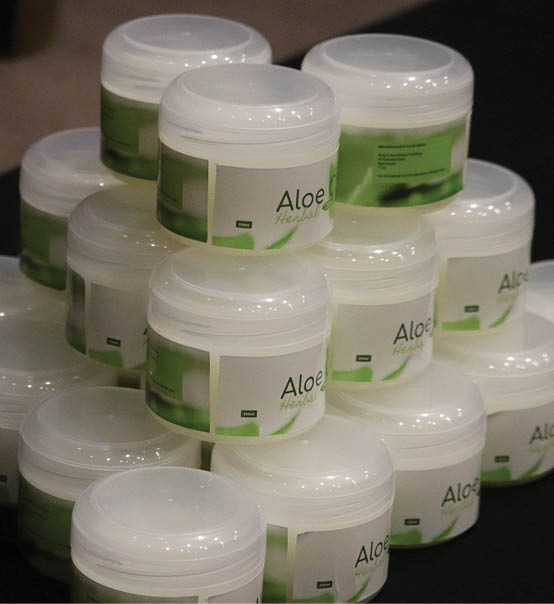
For many years, Africans have relied on traditional medicine for healing, despite the dominance of Western medication. South Africans are no different, with traditional medicines widely used in the country.
The Council for Scientific and Industrial Research (CSIR) has teamed up with six traditional health practitioners to develop safe and standardised traditional medicines for commercialisation in a project funded by the Department of Science and Innovation.
According to one of the participating health practitioners, Prince Edward Nkosiyokuthula Msomi, the project is the first step to eliminate false claims by healers and to remove the perception that this type of medicine is unclean and does not work.
“The research project started in 2016 and the aim was to help us make our medicines ready for commercialisation, by testing the products for safety, quality and efficacy and to obtain medicinal properties,” he says.
Msomi, who has been a traditional health practitioner since 2005 and who gained much of his knowledge from his grandfather, is the owner of Prijap, one of the medicines chosen for the commercialisation programme. Prijap is a herbal liquid that has anti-viral and anti-inflammatory properties, boosts the immune system and increases energy levels and appetite.
The other products which were tested are Umphetha, an iced tea used for internal ulcers, blood cleansing and immune boosting; Moshumasekgwa, a tea that treats high blood pressure, diabetes and urinary problems; Lenong, a tissue oil to treat wounds and arthritis; Kgopa, a petroleum jelly to treat sores, skin problems and stomach aches; and Areka Ya Makgoma, a herbal sachet that facilitates the healing process of opportunistic infections and improves appetite.
CSIR Senior Researcher Dr Greg Gordon confirms that although these products have historically been used by traditional health practitioners, they required improvements.
“To ensure the safety and quality of these products, we came together with the University of Pretoria and used our scientific expertise to identify the active mixtures. We also carried out in-vitro tests to confirm the activity of the ingredients/products and then re-formulated the mixtures in consultation with the traditional health practitioners. Dermal safety studies, microbial, shelf life and stability studies of the new products also formed part of the safety and quality procedures we followed.”
Msomi says that since participating in the programme, his brand, Prijap Biolife Biotechnologies, has grown and now houses four interns who are completing their national diploma in biotechnology.
Steps to revive the economy
Steps to revive the economy SiboneloIt will soon be a year since the first reported case of Coronavirus Disease (COVID-19) in our country. The pandemic has come at a great cost to both public health and the livelihoods of millions of our people. Many workers lost part of their income as their work hours were reduced with many being retrenched. Several businesses have incurred heavy losses from scaled-back operations. Others have had to close. People working in the informal sector have also suffered.
Most difficult of all, the pandemic has claimed the lives of breadwinners in many families, leaving them destitute and fearful for the future.
This is why the extensive relief measures we put in place were both necessary and urgent. And, now that nearly a year has passed, we can say that these measures have proved effective.
Of the full package of relief measures that we introduced, perhaps the two measures that had the greatest impact were the Special COVID-19 Social Relief of Distress Grant and the Unemployment Insurance Fund's (UIF) COVID-19 Temporary Employer/Employee Relief Scheme, generally known as COVID TERS.
We would not have been able to roll out these measures in such a short space of time if we had not had an extensive social security infrastructure already in place.
We were able to respond to this huge and immediate need in our society thanks to the substantial nationwide infrastructure and systems of the South African Social Security Agency and the UIF.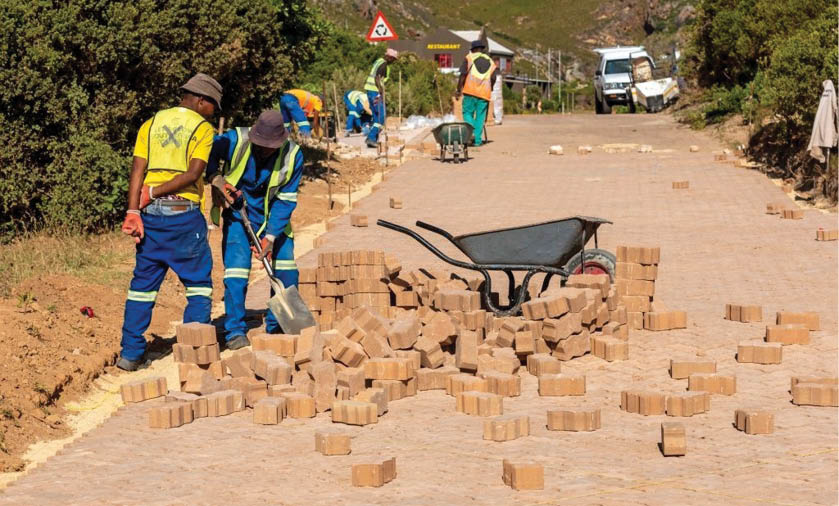
There were certainly technical and other glitches along the way, but most of these were speedily resolved. These government agencies did outstanding work to enroll millions of new beneficiaries and ensure they were paid.
The support provided by the UIF was a lifeline to struggling businesses and employees. It made the difference between companies remaining open and being forced to close, between jobs saved and jobs lost.
This benefited businesses like Sihle’s Brew, a restaurant in Gauteng, which was able to retain its 18 employees because of the TERS scheme. Thanks to government support, Mamoshalagae Trading and Projects, an auto-electrical business in Mokopane, was able to pay its workers as well as its rent and rates during the lockdown.
Employees in dire straits were able to receive a portion of their salaries.
Lindiwe Ntuli, a paralegal in Centurion, has told how receiving her benefits enabled her to work from home and be able to afford her rent.
There are many stories of companies that have been able to stay afloat over the past year because of the support they received from the UIF. The same can be said of the small businesses helped by the various grants and loans provided by a number of departments.
These measures greatly helped our people in their time of need.
As we transition from relief to recovery, we have to shift gear.
While these relief measures were designed to be temporary, the economy will continue to feel the effects of the pandemic for some time.
Even as lockdown restrictions have been eased, many companies are struggling to cope with the fallout of months of diminished operations and lost revenue.
It is for this reason that, following extensive discussion with social partners at the National Economic Development and Labour Council the COVID TERS benefit has been extended until 15 March 2021 for sectors that have not been able to fully operate.
The special COVID grant has been extended for another three months.
These remain short-term measures.
Our focus now must be on creating an enabling environment for businesses to recover, and for economic growth that spurs job creation and attracts investment.
The recovery will be difficult and will take time, not least because we are still in the midst of the pandemic.
Important as these relief measures are now, we will not be able to sustain them indefinitely.
We need to make sure that these relief measures provide a firm foundation for a broader recovery without driving the country deeper into debt. Unless we can bring our national debt down to sustainable levels no meaningful economic recovery will be possible.
Our national consciousness must now move beyond the realm of relief into that of recovery, and we must all be part of this effort.
As government, hard decisions on public spending will need to be made and implemented this year.
Companies will need to be innovative in driving methods and processes that secure their sustainability and profitability, with job retention being their foremost consideration.
We must put our money back into our economy by buying local products, supporting local businesses and industrie and procuring from local suppliers.
An injured patient with strong prospects for recovery is given regular physical therapy to help them get stronger until they can stand unaided.
So must these temporary relief measures be seen as the means to get our economy back on its feet. Our ultimate goal is to walk again.
As a nation, let us all lend a hand. Let us be part of our own development and progress.
Let us use the extended relief to drive a stronger recovery.
Supporting young job creators
Supporting young job creators UrsulaYoung people are being helped to start their own businesses so that a generation of entrepreneurs and job providers can be created. 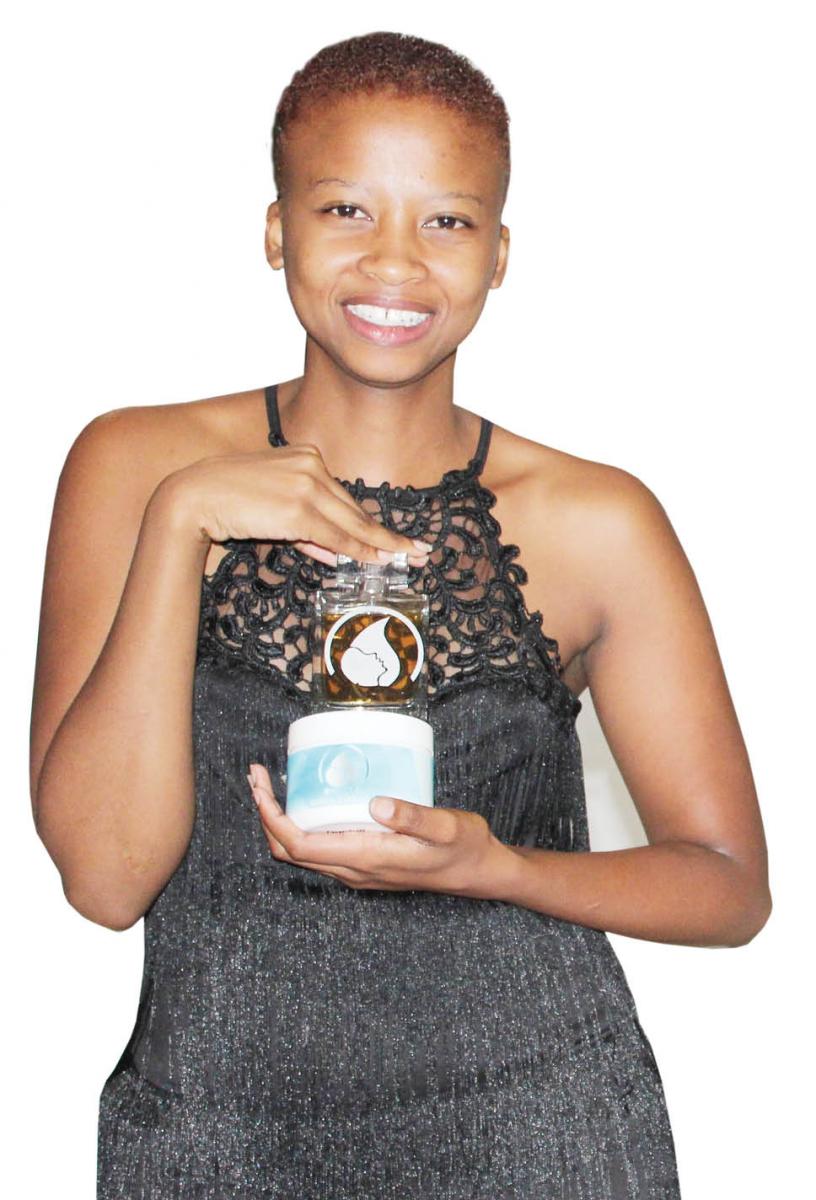
Minister of Small Business Development Khumbudzo Ntshavheni says three years from now, youth unemployment should no longer be a talking point in South Africa.
Her department and its agencies have been tasked with supporting at least 15 000 small businesses by the year 2024.
“By 2024, we should no longer be referring to a high youth unemployment rate in South Africa; rather, we should be talking about the high economic participation of young people because, unlike our parents who were trained to be job seekers, we have the responsibility to train and support job creators,” says the Minister.
She recently provided a progress report on her department’s efforts to support the commitment made by President Cyril Ramaphosa during the 2020 State of the Nation Address (SONA) to assist 1 000 small, medium and micro enterprises and co-operatives within 100 days.
The Minister says the delay in providing feedback was as a result of the Coronavirus (COVID-19) pandemic.
She commended the National Youth Development Agency (NYDA) for supporting start-up businesses owned by young people, especially in industries such as construction, marketing, car repair services, poultry farming, health and beauty, fashion, event management and catering.
However, she challenged all funding agencies to also champion ‘high-risk businesses’ that operate in a more innovative space.
“We need to be bold enough when providing support to young people and allow them to experiment,” says Minister Ntshavheni.
Entrepreneur receives support
Thanbang Mabel Leeuw (21) from the Free State is among the 1 000 entrepreneurs who received support from the NYDA last year, within 100 days of the SONA.
She owns @SCENTS (Pty) Ltd, which manufactures and distributes perfumes and cosmetic products.
Leeuw realised her passion for cosmetics in 2016 when, as an agricultural student at the University of the Free State, she sold perfume to generate extra income. This sideline hustle sparked her dream of creating her own cosmetics range and in 2018, she did a six-month cosmetics manufacturing course in Cape Town. The following year, she launched @SCENTS.
Leeuw participated in the Tabalaza youth development programme in 2019, hosted by the Free State Department of Economic, Small Business Development; Tourism and Environmental Affairs, and won third prize.
She used the money to increase production and improve her branding.
“The department also assisted me with R156 000 in COVID-19 relief funding, which helped sustain the business during the strict lockdown and paid the wages of five permanent employees and one seasonal worker,” she says.
The NYDA also gave her R49 000 in grant funding in 2020 to help her open a store. “I wanted to open a shop, so I used the money to buy shop fittings, equipment and stock. The demand for my products started increasing as a result,” she says.
The company also distributes its products through agents in Bloemfontein, Pretoria, Welkom, Kimberley and Botshabelo. It sells to hotels and guesthouses as well.
To get hold of @SCENTS contact 065247952 or scentscosmetics@gmail.com
Did you know? That the NYDA offers assistance to young entrepreneurs. For more information on services offered by the NYDA call 0800 52 52 52 or visit www.nyda.gov.za.
What you need to know about the Johnson & Johnson vaccine
What you need to know about the Johnson & Johnson vaccine UrsulaSouth Africa kick-started its first phase of the vaccination rollout programme using the Johnson & Johnson vaccine recently. 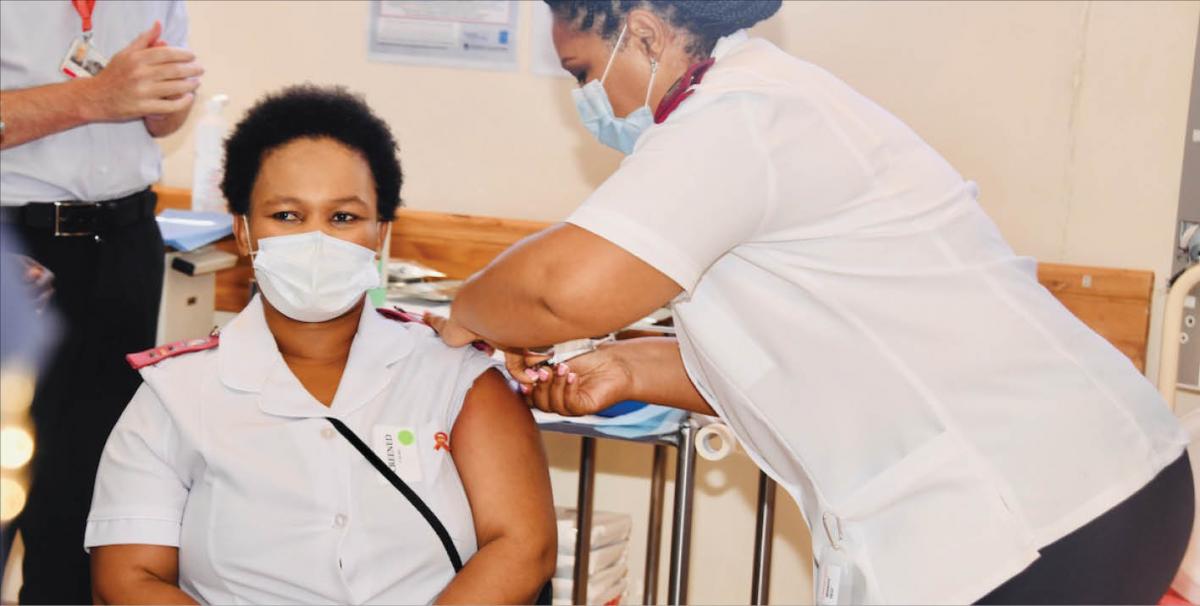
The first group of healthcare workers lined-up to receive a shot of the
80 0000 Johnson & Johnson vaccines that arrived in South Africa, which the department has described as a success.
The Health Department answers some of the burning questions about who will get it first; why it is a good choice for the country; why pregnant woman cannot get the shot and how effective it is?
Why is the Johnson & Johnson vaccine a good first choice for the National Vaccination Programme?
It was tested in a large trial of almost 44 000 people from four continents, of whom 7 000 participants came from South Africa.
The study also provided a good picture of how the vaccine works against the new 501Y.V2 variant. The South African trial showed that while the Johnson & Johnson vaccine is not going to prevent mild symptoms, it provides 57% protection against moderate-severe disease, 85% protection against severe disease and 100% protection against death.
How does the vaccine protect you against COVID-19?
When injected, the vaccine trains your immune system to fight the virus that causes COVID-19. The vaccine does not contain the Coronavirus and will not give you COVID-19.
Some mild side effects include tenderness at the injection site, feeling unwell, fever and a headache for a few days, and these are positive signs that the body is mounting an immune response to the Coronavirus. When you encounter real Coronavirus particles in future, your immune system will be able to disarm the virus so that you either do not fall ill at all or if you do, the symptoms are mild and your chances of being hospitalised or dying are much lower.
How is the vaccine given and when does protection start?
The vaccine is given as a single dose to the upper arm. Protection starts around 10 to 14 days after vaccination and even as early as seven days for severe disease and can also rise to good levels around a month after vaccination.
It is currently the only vaccine available that uses a single dose, while others require two shots.
No vaccine provides 100% protection. However, the jab is said to provide 57% protection against moderate-severe disease, 85% protection against severe disease, and 100% protection against death.
I am a health worker. How can I access the programme?
The first step to accessing a vaccine is to register on the country’s Electronic Vaccination Data System (EVDS). You can access the system by visiting the website: https://vaccine.enroll.health.gov.za.
In general, patient-facing health workers will receive priority access to vaccines. Non-clinical staff and traditional healers are also eligible to register on the EVDS.
You will receive an SMS alert with a vaccination voucher and details on which vaccination centre to attend and when. You will also be asked to read an information sheet and provide advanced consent for vaccination before your visit. On the day of your vaccination, you will need to arrive with your voucher and an identity document.
Are there any reasons why pregnant women will not be able to access the programme?
The vaccine is unavailable to pregnant women during this initial stage, which is a common practice when vaccines are not yet fully licensed, such as during clinical trials.
Access to COVID-19 vaccination for pregnant women is likely to be made available in the coming months. However, the vaccine can be safely used in breastfeeding women.
Why do I need to sign consent for the vaccine?
Consent to be vaccinated against COVID-19 is being sought in most national vaccination campaigns around the world. This is common when vaccines are provided under Emergency Use Authorisation mechanisms. You will also be asked to provide consent for the Johnson & Johnson vaccine as part of the early access arrangement through the Sisonke programme.
The information has been loaded on the EVDS and you will need to read it and agree to receive it before you attend your vaccination visit. Staff will also recheck this with you to attend your vaccination.
It also includes consent to access your medical records to monitor any future episodes of COVID-19 or hospitalisations.
This information will include where appropriate, your ID number, name, date of birth, postcode and contact details.- SAnews.gov.za.